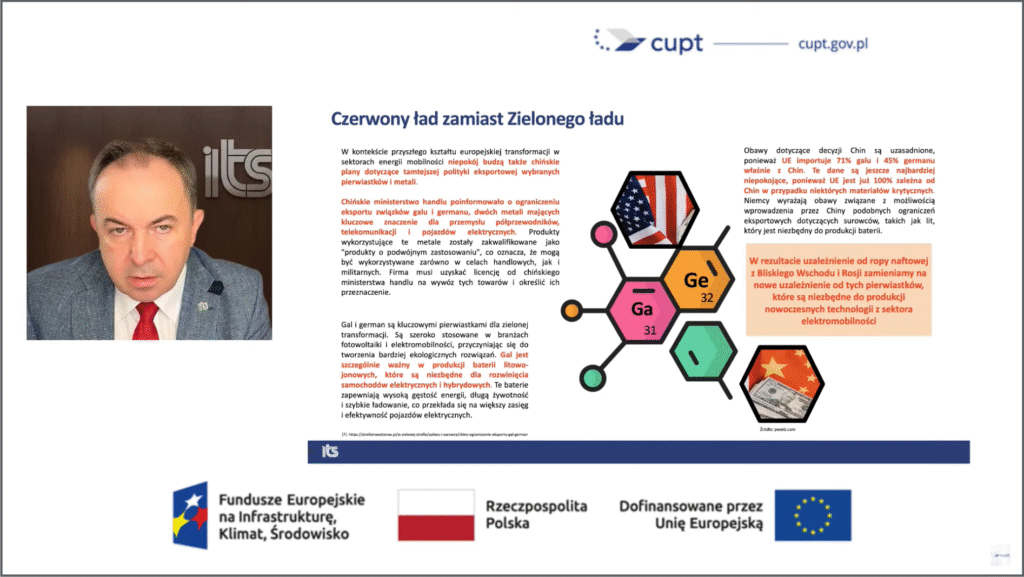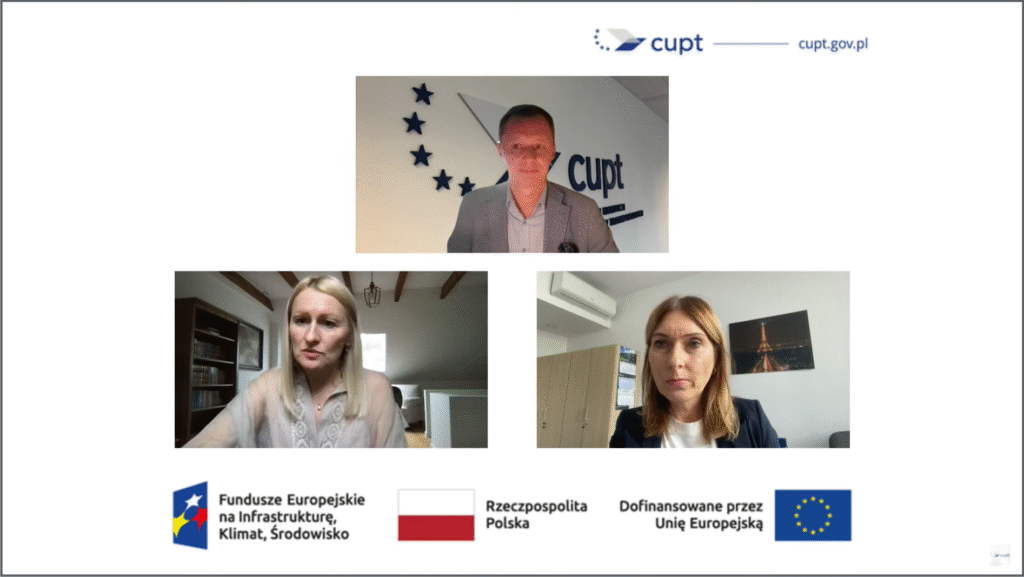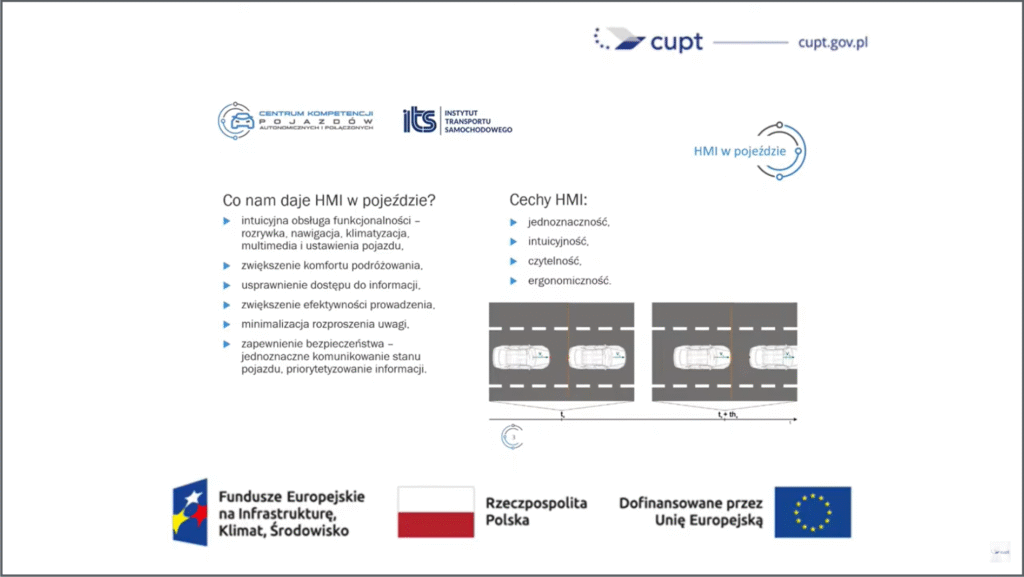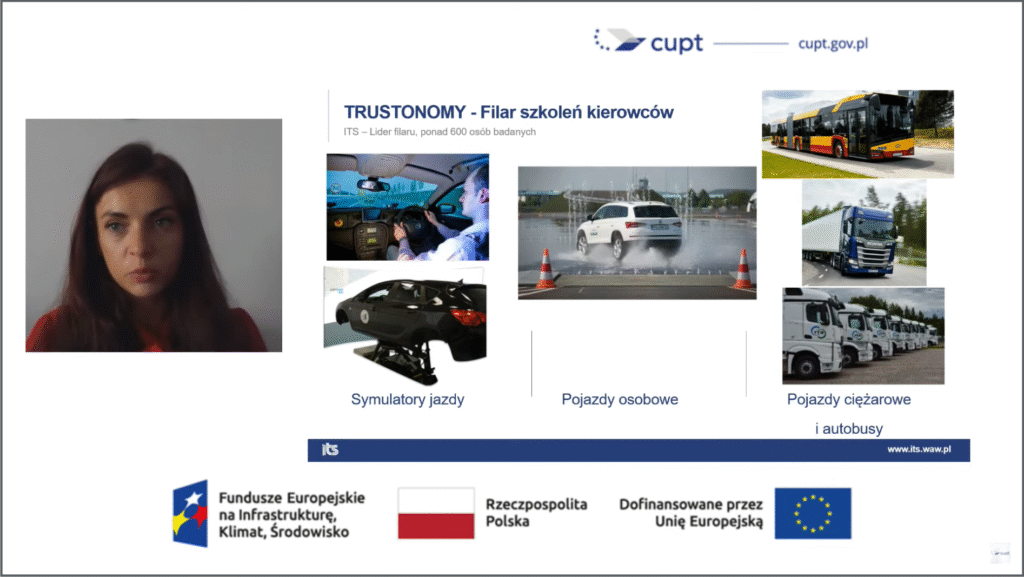Blog
Psychology of Mobility – Shaping Future Transport Behaviors
On 16–17 September, the International Conference “Psychology of Mobility – Shaping Future Transport Behaviors” was held, organized by the Center for EU Transport Projects, the Motor Transport Institute, and the City and Municipality of Skawina. The event, conducted within the framework of the Transport Research Observatory, gathered experts, practitioners, representatives of public administration and research institutions, as well as a broad audience of participants. The conference was held under the honorary patronage of the Ministry of Infrastructure.
Contemporary transport challenges require not only technological innovation but also an understanding of human behavior. For this reason, transport psychology is becoming a key tool in shaping transport systems. The process of changing mobility habits is long-term and requires a broad interdisciplinary approach, integrating urban planning, sociology, psychology, and economics.
During the conference, experts from Poland and abroad focused on the psychosocial determinants of transport choices and the psychological challenges related to the implementation of new transport technologies. The discussions addressed the impact of vehicle automation and advanced driver assistance systems on user behavior and adaptation patterns, including psychological barriers to adopting more innovative modes of transport. Emphasis was placed on the importance of coherent urban design that motivates the use of active and sustainable forms of mobility. Participants also discussed the need to utilize European Union funds, which act as a catalyst for innovation in mobility psychology, as well as the role of social media in promoting sustainable mobility.
The conference was also attended by representatives of the Motor Transport Institute, including experts from the Connected and Autonomous Vehicles Competence Centre (CK:PAP). Professor Marcin Ślęzak, DSc, Eng., Director of the Motor Transport Institute and Head of CK:PAP, outlined the Institute’s scope of activities, emphasized its engagement in the development of automated mobility, and discussed the ongoing changes in approaches to mobility. His speech also included a presentation entitled “Risks Arising from Electromobility”, focusing on the social aspects of decision-making regarding the choice of transport mode. Professor Ślęzak stressed that electromobility has become one of the key issues in the future of transport. However, its development is not free from technological and infrastructural challenges.
Urban areas are increasingly adopting solutions based on vehicle sharing, particularly for electric and autonomous vehicles. It is estimated that by 2050, as many as 30% of cars in major cities could be shared vehicles. Key to this shift would be reducing the number of vehicles in operation, especially in urban areas, achievable through vehicle-sharing systems. The introduction of autonomous vehicles could contribute to reducing the number of accidents and fostering new business models related to mobility. This would align with the main objectives of the European Union, which focus on creating a transport system that is both environmentally friendly and efficient.
During the first conference session, Dr. Ewa Odachowska-Rogalska delivered a presentation entitled “Psychological Aspects of Transport Choices.” The CK:PAP expert explained what transport choices are, the models behind them, and the role of psychology in the selection of a transport mode. Decisions in this area are influenced, among other factors, by the need for safety and control, a sense of physical and emotional comfort, and the inclination to minimize effort. Decision-making also involves specific mental patterns and depends on social status and identity. Several psychological theories explain these choices, such as the Theory of Reasoned Action, which posits that people behave rationally and consider the potential consequences of their actions in terms of usefulness for their goals and needs. Numerous psychological methods exist that can be used to influence transport choices in society. Attitude changes can result from information campaigns, various forms of education, technological advances, and infrastructure development.
During the second session, Ms. Monika Ucińska and Dr. Ewa Odachowska-Rogalska presented “Psychological Aspects of Vehicle Autonomization (Adaptation to Autonomous Vehicles and Behavioral Change Processes from a Psychological Perspective).” The speakers demonstrated that acquiring knowledge is essential for changing attitudes and behaviors. Since these processes are long-term and demanding, the human factor remains the main determinant influencing road incidents. Experience is also essential in changing habits—hence the necessity of training. One effective solution could be training vehicle owners at the time of purchase, preferably delivered directly by manufacturers or car dealerships. Research confirms that experience in using driver assistance systems is a critical factor in their acceptance. Public campaigns and comprehensive driver training, ensuring access to knowledge and highlighting the benefits of behavioral change, were identified as necessary measures.
Another presentation, “The Impact of the Human-Machine Interface (HMI) on the Takeover Request in an Automated Vehicle,” was delivered by Ms. Aleksandra Rodak, MSc, Eng. This issue is crucial for the deployment and use of autonomous vehicles, as road safety depends on the quality of communication between the system and the driver. The HMI in a vehicle serves as a bridge—both technologically and functionally—between the human and the machine. Research identified which forms of vehicle-to-driver communication are most effective and elicit the quickest reactions: visual, acoustic, haptic (vibrations), and combined solutions. Participants indicated that sound and vibration proved to be the most effective, though acoustic signals may be missed when listening to loud music. The results may help define directions for interface development and for tailoring communication methods and intensities to the driver’s condition.
Dr. Małgorzata Pełka presented “New Methods of Driver Training in the Use of Advanced Driver Assistance Systems.” She emphasized that with the development of in-vehicle technologies, drivers’ skills and competencies must also evolve. Advanced driver assistance systems have been designed and implemented to enhance road safety and driving comfort. However, these goals cannot be achieved if the technologies are misused. During her presentation, she introduced a new methodology for driver training, developed within the framework of the international Trustonomy project. The Institute conducted training sessions using high-quality driving simulators, which provided participants with the opportunity to learn in safe, controlled conditions. The research results demonstrated the high effectiveness of the training.
Shaping the future of transport requires cross-sectoral cooperation, interdisciplinary actions, and collaboration between public administration, business, and academia. Transport decisions are shaped by psychological, social, and cultural factors, but these decisions can also be influenced and supported in ways that foster the shift towards sustainable mobility. The role of European Union funds is equally important, as they enable the implementation of innovative transport projects that also take into account psychological and social dimensions.
Source:
Center for EU Transport Projects (CUPT)
https://www.cupt.gov.pl/aktualnosc/relacje-z-wydarzen/konferencja-psychologia-mobilnosci-ksztaltowanie-zachowan-transportowych-przyszlosci/
Link to broadcast – Day I of the conference:
- Polish version: Psychologia mobilności – kształtowanie zachowań transportowych przyszłości PL
- English version: Psychology of Mobility – Shaping Future Transport Behaviors EN
Link to broadcast – Day II of the conference:
- Polish version: https://www.youtube.com/watch?v=jeOfKbV7fn0
- English version: https://youtube.com/live/3EbDvkT2sGs?feature=share





